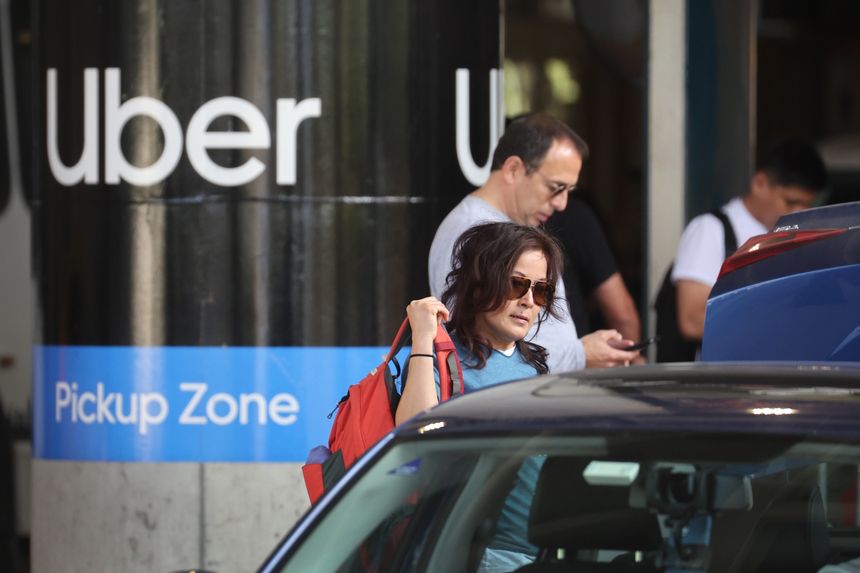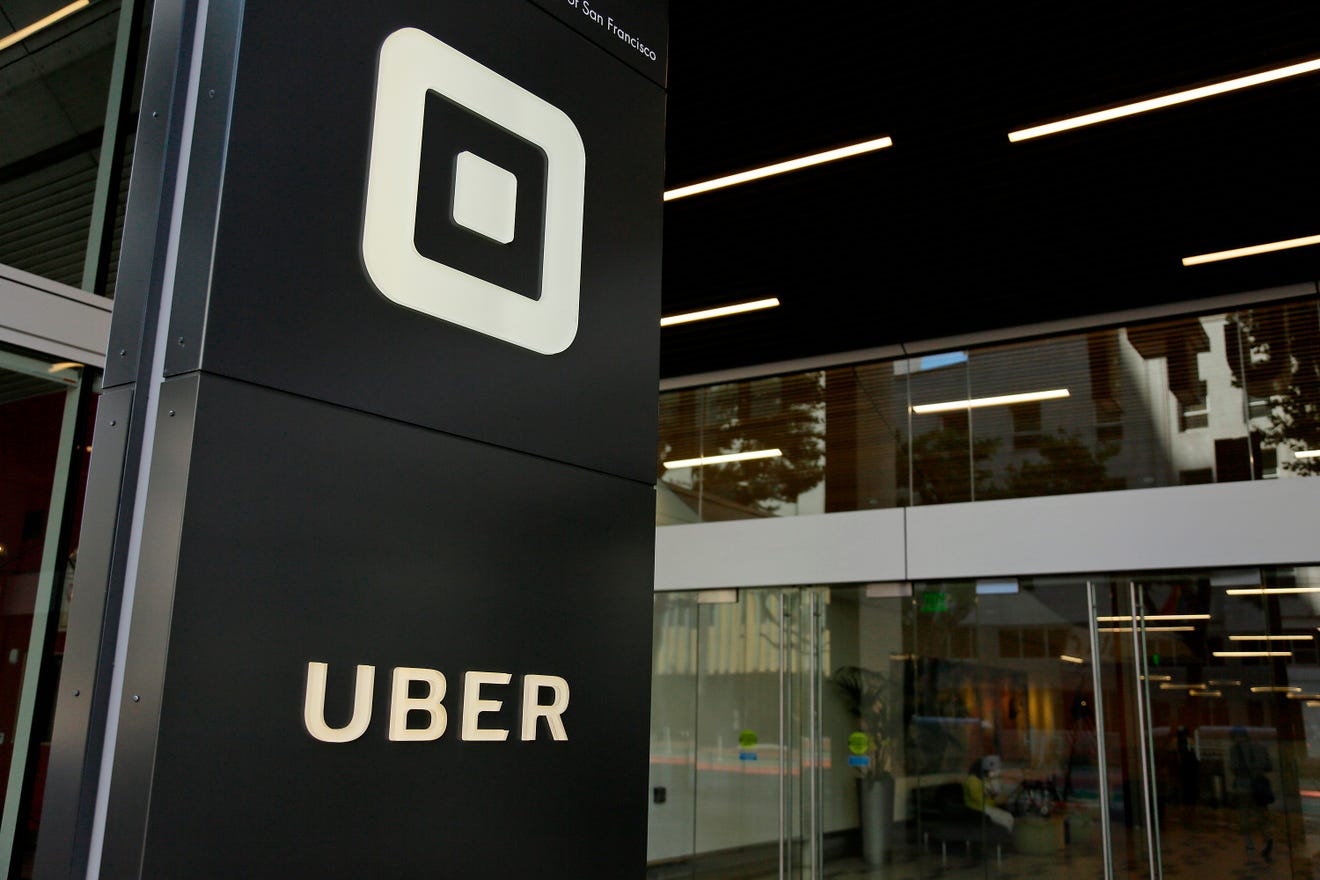This article is more than
5 year oldWhy Uber may still be worth $100 billion-plus even after its embarrassing IPO
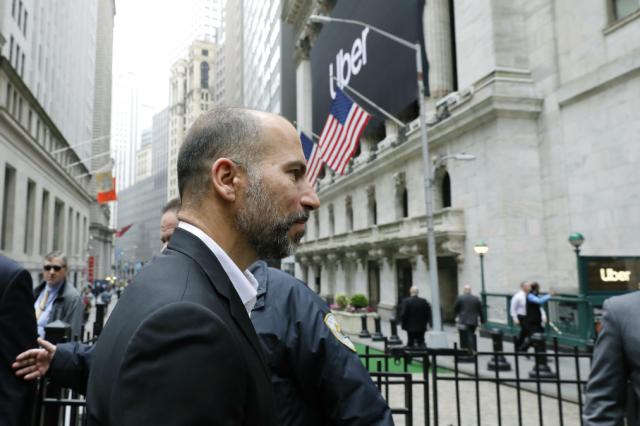
The long-term can’t get here quick enough for Uber (UBER) CEO Dara Khosrowshahi after its hotly anticipated IPO got relegated to the embarrassing column amid a terrible first day of trading Friday on the New York Stock Exchange.
In hindsight, ousted founder Travis Kalanick’s decision to reportedly watch some of the early trading with friends and current/former Uber employees over coffee around the block of the NYSE was a wise one — who would want to see a day one bloodbath of a company once believed to be worth $120 billion plus?
What happened
With President Donald Trump dropping trade war bombs on the heads of Chinese officials via Twitter and rival Lyft (LYFT) continuing to be a disaster, post its late March IPO, Uber’s IPO day for lack of better words stunk.
The ride-hailing business priced its stock at $45 a share on Thursday, giving the company a valuation of $82.4 billion. Uber began trading on Friday morning at about $42 a share. By the time the market closed, Uber’s stock had nosedived 7.6% from its IPO price to $41.57.
“We believe Uber is off to a choppy trade on the heels of the Lyft train wreck out of the gates and general investor nervousness on the U.S./China [trade war], risk-off worries in this market,” Uber bull and Wedbush Securities analyst Dan Ives tells Yahoo Finance.
Ives says many investors he spoke to were hesitant to buy Uber out of the box given the beating Lyft has taken since its IPO. Investors are waiting to see the stock settle before accumulating significant positions, according to Ives.
It will be interesting to see when Uber’s stock does decide to settle.
The company isn’t expected to be profitable anytime soon. Concerns continue to mount on Uber’s ability to sustain its independent contractor model for its drivers. And the business arguably has no moat around it — capital is simply being invested to drive quarterly market share in the ride-hailing battle with the smaller Lyft.
Wall Street reacts
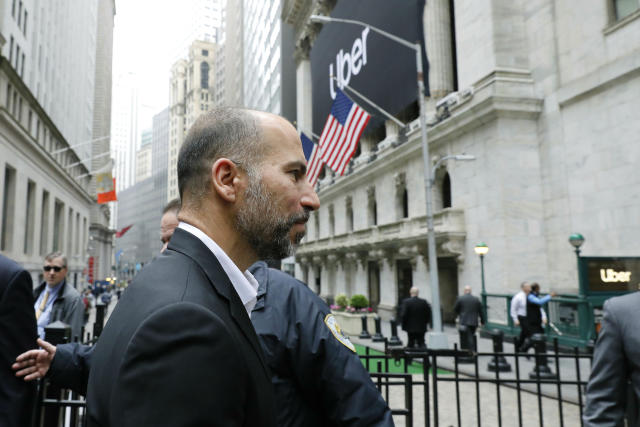
Friday, May 10, 2019.
(AP Photo/Mark Lennihan)
Wall Street analysts mostly came out bullish on Uber ahead of its IPO. It’s unlikely this influential crowd will shift their views due to what may be a sluggish first few days of trading. But if the stock’s weakness does persist into June in the lead-up to Uber’s first earnings report, the analyst community may have no other choice but to change their tune.
For now, a bull such as Ives is staying the course.
“We are not worried the stock is turbulent today on its first day of pricing and we continue to believe on a sum of the parts valuation this stock is worth a $100 billion+ and we would be buyers here despite the choppy tech tape and general market worries,” Ives contends. “We believe this weakness in shares of Uber will be not be elongated as the core value of this franchise is markedly higher than these levels in our opinion.”
Ives believes that Uber is not unlike Amazon or Facebook — a true number one player in an industry it’s pioneering. That, Ives reasons, is why Uber’s long-term valuation is probably higher and one day of soft bids for the stock is nothing.
Others on the Street are unsure.
“The message from Wall Street is clear that investor appetite for ride hailing firms is not what the hype expected it to be,” says Jasper Lawler, head of research at London Capital Group.
Even Lyft management proclaiming on its first earnings call with analysts this month that 2019 would mark peak losses didn’t jump-start the sagging stock. Given Lyft’s inability to convince people to jump into the stock 23% lower from IPO day, it’s hard to see how Uber management wins over a chorus of early bears.
Good luck to you, Mr. Khosrowshahi.
Keywords
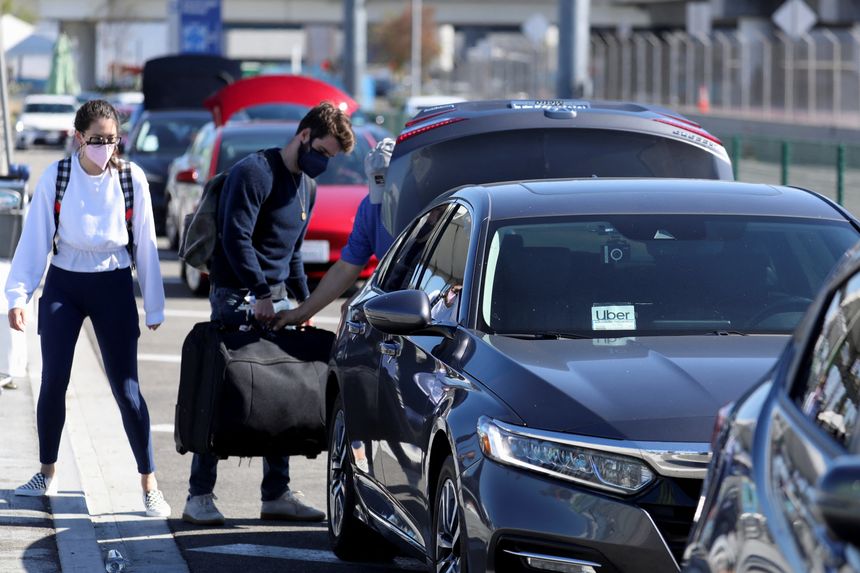
Newer articles
<p>New Delhi says it is “deeply concerned” about the situation in the Middle East, which “threatens peace and security”</p>
Why Israel is risking a dramatic escalation with Iran
Iron Dome, David’s Sling, Arrow: Israel’s air defense against Iran, explained
Israel’s War Leaders Don’t Trust One Another
OJ Simpson to be cremated and no plans to donate brain to science, lawyer says
Bianca Censori stuns in extreme v-neck dress
US helped Israel take down ‘nearly all’ Iranian drones and missiles – Biden
‘Their tactics have changed’: Russia’s bid to blow apart Ukraine’s power grid
Russia's meat grinder soldiers - 50,000 confirmed dead
How Leslie Liao left Netflix’s HR department to become a rising star in stand-up

